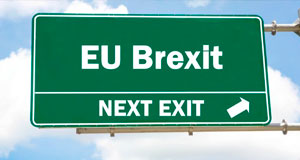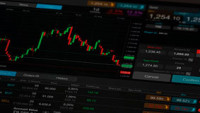 The approaching referendum on the UK’s place in the EU has the potential to spur an existential crisis for either major UK political party, or both, and yet assets you might expect to look most worried about it remain blithely unconcerned.
The approaching referendum on the UK’s place in the EU has the potential to spur an existential crisis for either major UK political party, or both, and yet assets you might expect to look most worried about it remain blithely unconcerned.
Take a look at UK sovereign debt, also known as gilts. The yields of many maturities actually slid to record lows in the middle of this month. That suggests that not only were investors failing to demand any substantive premium to compensate them for the risks of a Brexit, they were still viewing gilts as among the safest of haven assets, referendum or not.
However Samuel Tombs, chief UK economist at Pantheon Macroeconomics, thinks the end of innocence is coming soon.
“Tentative signs are emerging that Brexit concerns are beginning to weigh on the market,” Tombs wrote on Sunday.
“The cost of insuring against default on UK government debt has risen over recent weeks and is now broadly in line with that of French debt,” he goes on.
“These costs have increased for ultra-safe German debt too, but the UK’s rise has been particularly sharp. In addition, the spread of 10-year gilt yields over overnight index swap rates — an indicator of the risk premium embedded in gilts — has picked up to 35 basis points, from 1bp six months ago.
It’s also noteworthy that the average bid-cover ratio at gilt auctions — a measure of demand — has trended down this year. A sale of five-year paper last month attracted just 1.07 times the value issued in bids. That’s very low for a sovereign issuer of the UK’s quality.
“We see a high chance that an auction fails soon,” Tombs writes, referring to the prospect of an auction which simply doesn’t attract sufficient interest to buy the gilts on offer. All told, it is difficult to see how the government will be able to continue borrowing as cheaply as it has been.
Around 25% of the gilt market is held by non-UK-based accounts, and it may be that increased focus on Brexit in the international press will see these holders rethink their desire to hold the paper.
“Gilt yields could rise in the near-term in response to rising political risks,” Tombs concludes.
Source: Pantheon Macroeconomics
Article by David Cottle












